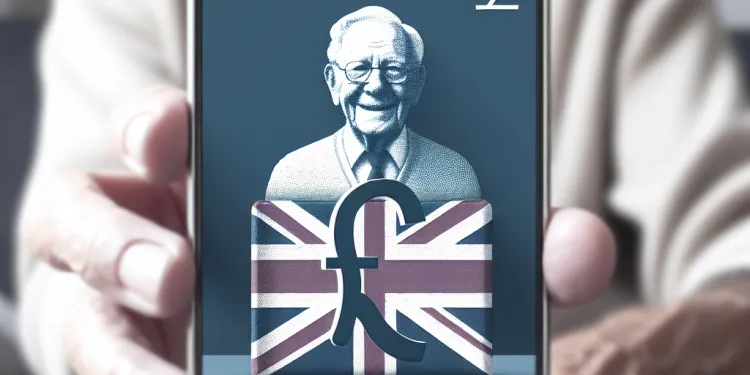
Find Help
More Items From Ergsy search
-
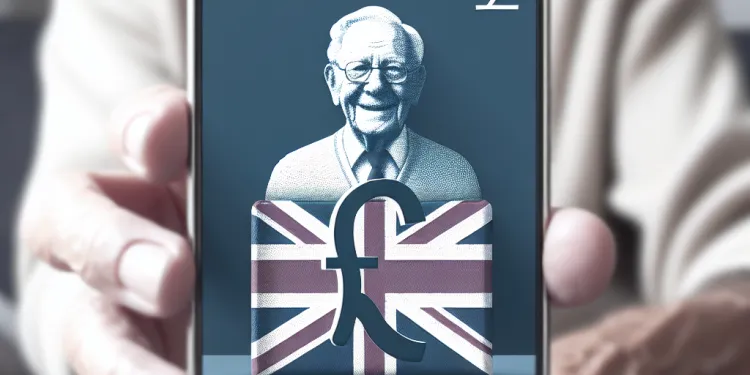
UK's Elderly Population Faces Growing Loneliness Crisis
Relevance: 100%
-
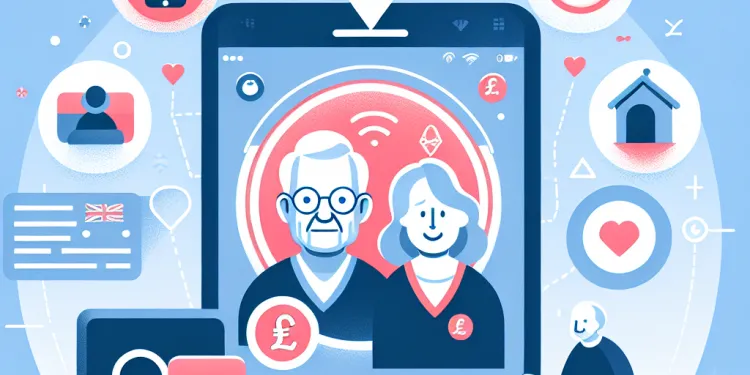
Innovative App Aims to Combat Loneliness Among Elderly
Relevance: 47%
-

What are the causes of the loneliness epidemic?
Relevance: 42%
-

What is the loneliness epidemic?
Relevance: 42%
-

Are urban environments related to the loneliness epidemic?
Relevance: 39%
-
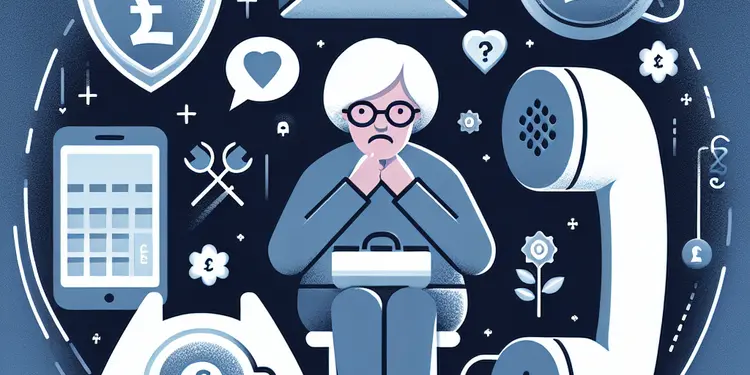
Why are elder individuals often targeted by scammers?
Relevance: 39%
-

How does the loneliness epidemic impact mental health?
Relevance: 37%
-

Lone Workers
Relevance: 36%
-

What are some physical health effects of loneliness?
Relevance: 33%
-
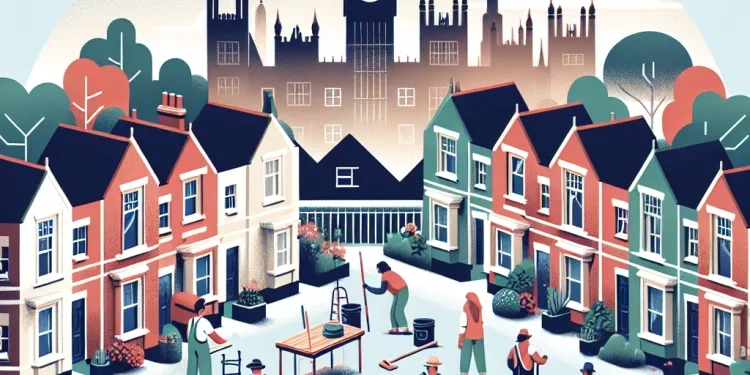
Impact of UK Housing Crisis on Local Communities
Relevance: 33%
-

Who is most affected by the loneliness epidemic?
Relevance: 32%
-

Can loneliness affect work productivity?
Relevance: 32%
-

Addressing the Housing Crisis: Current Challenges and Solutions
Relevance: 32%
-

Strategies for Reducing Loneliness and Social Isolation in Urban Areas
Relevance: 30%
-
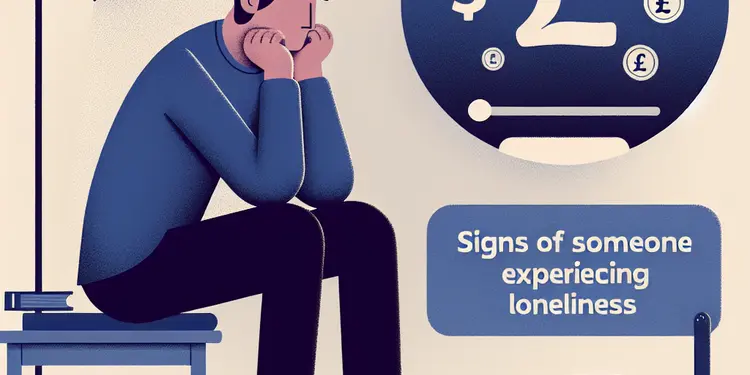
What are some signs that someone might be experiencing loneliness?
Relevance: 30%
-

What populations are at higher risk for E. coli infections?
Relevance: 30%
-

How does social media contribute to the loneliness epidemic?
Relevance: 29%
-

How do charity scams exploit the elderly?
Relevance: 29%
-

Are virtual wards suitable for elderly patients?
Relevance: 28%
-

Information on scams and fraud that targets the elderly.
Relevance: 28%
-
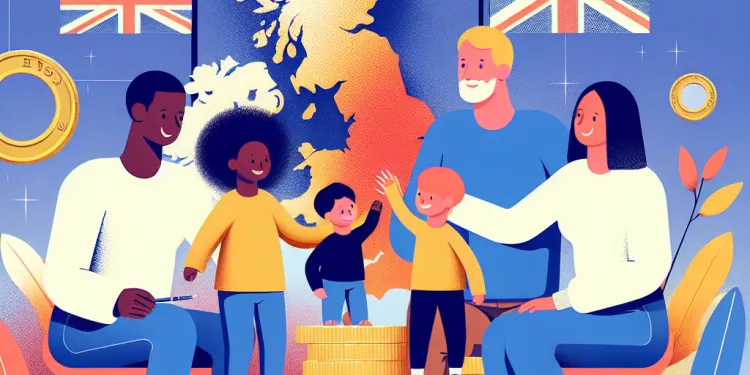
Navigating the UK Cost of Living Crisis: Tips for Families
Relevance: 27%
-
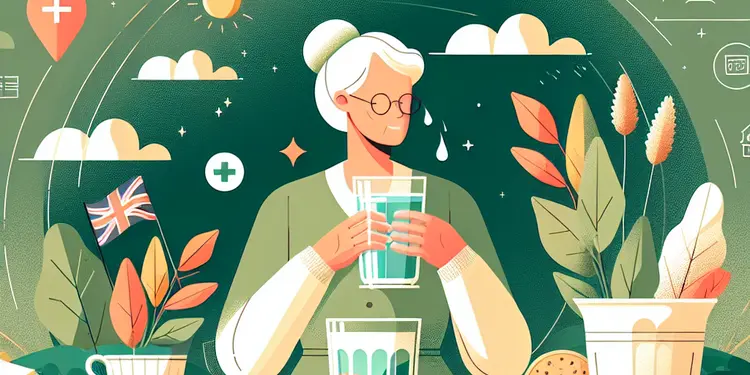
How does dehydration affect gut health in the elderly?
Relevance: 26%
-

Mental Health Impact of Cost of Living Crisis and Support Resources
Relevance: 26%
-

Addressing the Cost of Living Crisis: Community Support and Resources
Relevance: 25%
-

Addressing the Rising Homelessness Crisis
Relevance: 25%
-

Are climate changes affecting mosquito populations in the UK?
Relevance: 25%
-

Proposed Welfare Cuts and Their Impact on Vulnerable Populations
Relevance: 24%
-
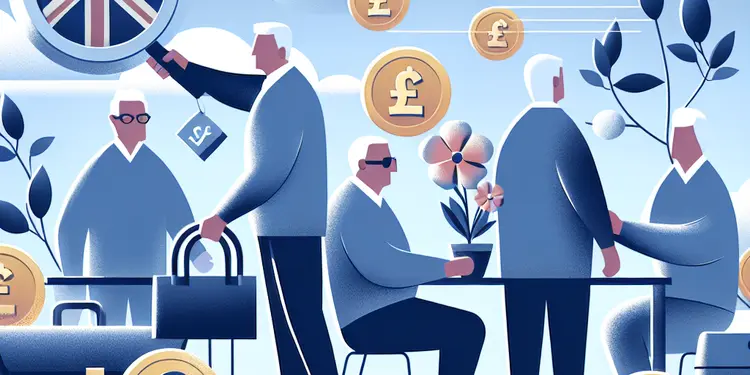
What is identity theft and how does it affect the elderly?
Relevance: 24%
-

Poor sense of smell in the elderly linked with higher risk of dying | NHS Behind the Headlines
Relevance: 24%
-

Are certain populations more at risk during the 2026 flu season?
Relevance: 23%
-

How does decreased reaction time affect elderly drivers?
Relevance: 23%
-
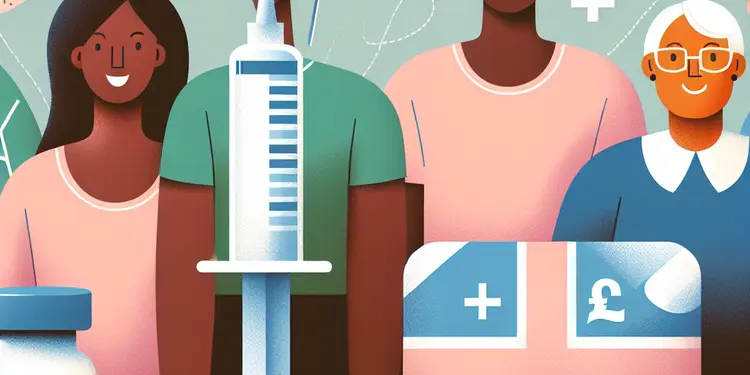
Nationwide Flu Vaccination Campaign Targets Vulnerable Populations
Relevance: 23%
-
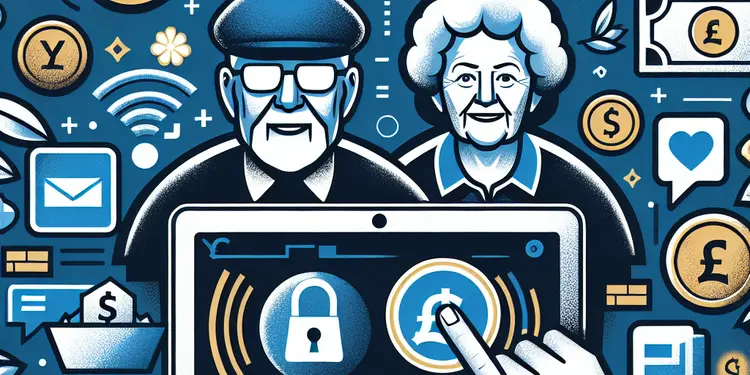
What are common scams that target the elderly?
Relevance: 23%
-

What methods are used to control screw worm populations?
Relevance: 22%
-

How can the elderly protect themselves from scams?
Relevance: 22%
-
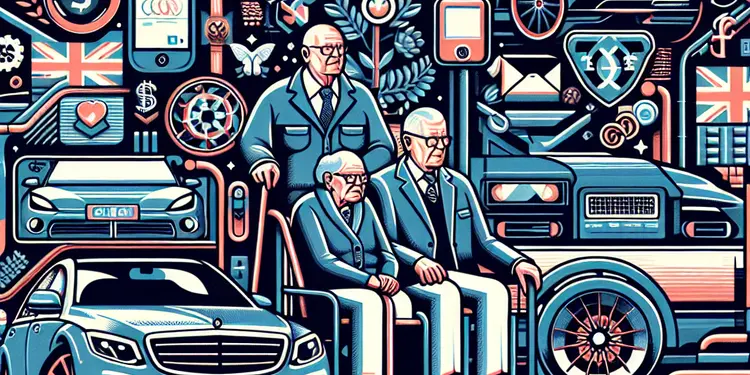
How can family members help assess an elderly person's driving ability?
Relevance: 22%
-
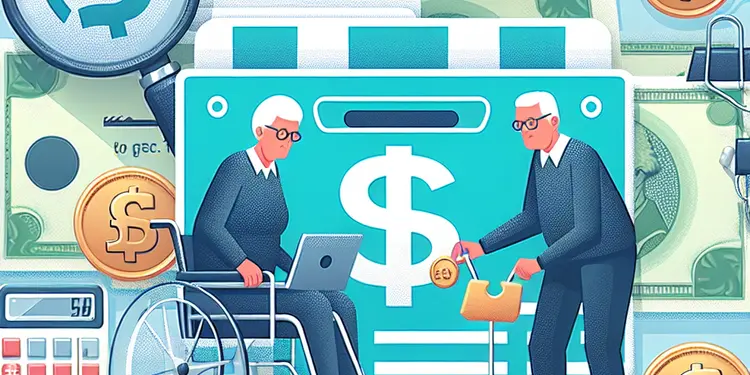
How does Medicare fraud target the elderly?
Relevance: 21%
-

What steps can I take to help an elderly loved one avoid scams?
Relevance: 20%
-

Are there any populations with high seed oil usage and low disease rates?
Relevance: 20%
-

Cost of Living Crisis: Supermarkets Promise More Discounts for Shoppers
Relevance: 19%
Introduction
The issue of loneliness among the elderly in the UK is becoming an increasingly pressing concern. With an aging population, the problem is not only growing but also evolving, posing significant challenges for individuals, communities, and policymakers alike. Loneliness can have profound effects on mental and physical health, making it a serious public health issue.
Understanding the Problem
Loneliness is often described as the subjective feeling of lacking companionship, while social isolation refers to an objective measure of the number of contacts or interactions. In the UK, almost half of people aged 75 and over live alone, and many report feeling lonely. This issue is exacerbated by factors such as bereavement, physical mobility limitations, and the geographical dispersion of families.
Impact on Health
The consequences of loneliness and social isolation are severe. Research indicates that chronic loneliness can lead to a range of health issues, including depression, anxiety, and an increased risk of cognitive decline. There is also evidence to suggest that loneliness can impact physical health, contributing to conditions such as heart disease and decreased immune function. Experts compare the health risks of loneliness to those associated with smoking and obesity.
Current Initiatives and Challenges
There are a number of initiatives aimed at tackling loneliness among the elderly in the UK. Government campaigns, such as those led by the Minister for Loneliness, and charities like Age UK, are actively working to raise awareness and create community networks and resources. However, these efforts face significant challenges—particularly financial constraints and the need for coordinated strategies across different sectors and regions.
The Role of Technology
Technology offers potential solutions to the loneliness crisis among the elderly. Digital platforms can facilitate connections, enable participation in online communities, and provide access to services. However, technology adoption in older populations can be limited by factors such as lack of access, skills, and confidence. Bridging the digital divide is essential for these technologies to be fully effective.
Community Engagement and Social Innovation
Community engagement plays a critical role in alleviating loneliness. Initiatives such as befriending schemes, local clubs, and intergenerational projects bring people together and foster a sense of belonging. Social innovation—such as creating age-friendly environments—can also contribute to reducing isolation. Encouraging volunteerism and support from local businesses can also make a significant difference.
Conclusion
The growing loneliness crisis among the UK's elderly population is a complex issue requiring a multi-faceted approach. Concerted efforts from the government, communities, and individuals are needed to create a more connected society. By addressing the root causes of loneliness and promoting inclusive, supportive environments, it is possible to improve the quality of life for many elderly individuals across the nation.
Introduction
Many older people in the UK feel lonely, and this is becoming a big problem. As more people get older, loneliness is affecting more individuals and communities. Feeling lonely can make people feel very sad and can also make them sick. This is why loneliness is an important health issue.
Understanding the Problem
Loneliness means feeling like you don't have anyone to be with. Many older people, especially those over 75, live by themselves and often feel lonely. This can happen because they have lost loved ones, cannot move around much, or because their families live far away.
Impact on Health
Being lonely a lot can make people very sick. It can cause sadness, worry, and even make it hard to think clearly. Loneliness can also make the body sick, causing heart problems and making it easier to get infections. Some say that being very lonely is as bad for your health as smoking or being very overweight.
Current Initiatives and Challenges
There are many efforts to help lonely older people in the UK. The government and charities like Age UK are trying to bring attention to this problem and help. However, there are big challenges like not having enough money and different areas not working well together.
The Role of Technology
Technology can help solve loneliness among older people. It can help them talk to others online and join groups. But, older people might not have computers or know how to use them. For technology to help, older people need support to learn how to use it.
Community Engagement and Social Innovation
Communities can help stop loneliness by bringing people together. Programs like befriending, local clubs, and activities with people of different ages can make people feel like they belong. Making places more friendly for older people and getting help from businesses can also help.
Conclusion
Loneliness among older people in the UK is a big problem, but there are ways to help. Everyone, from the government to local communities, needs to work together. By making friendly places and finding ways to include everyone, we can help older people have better lives.
Frequently Asked Questions
What is the current state of loneliness among the elderly in the UK?
The UK's elderly population is facing a growing loneliness crisis, with many older adults experiencing social isolation.
Why is loneliness increasing among the elderly in the UK?
Factors such as aging population, loss of family and friends, reduced mobility, and lack of community engagement contribute to increasing loneliness.
How does loneliness affect the mental health of the elderly?
Loneliness can lead to depression, anxiety, and cognitive decline, severely impacting the mental health of older adults.
What impact does loneliness have on physical health?
Loneliness is associated with higher risks of health issues such as heart disease, high blood pressure, and a weakened immune system.
What role do family and friends play in alleviating loneliness?
Regular interaction with family and friends can provide emotional support and reduce feelings of loneliness among the elderly.
Are there community programs available to help combat loneliness?
Yes, there are many community programs and charities in the UK aimed at reducing loneliness by offering social activities and support services.
How can technology help reduce loneliness among the elderly?
Technology like video calls and social media can help elderly individuals maintain social connections, especially when physical meet-ups are difficult.
What is the government doing to address the loneliness crisis?
The UK government has launched campaigns and allocated funds to initiatives focused on tackling loneliness among older adults.
How do living arrangements affect loneliness in the elderly?
Living alone or in care homes without regular visitors can increase feelings of loneliness compared to living with family or active communities.
What strategies can elderly individuals use to overcome loneliness?
Engaging in hobbies, volunteering, and joining social groups can help elderly individuals feel more connected and less lonely.
How significant is the role of healthcare providers in addressing loneliness?
Healthcare providers can identify signs of loneliness and refer elderly patients to appropriate community resources and support networks.
Can pet ownership help alleviate loneliness among the elderly?
Pets can provide companionship, reduce stress, and encourage physical activity, which may help reduce loneliness in older adults.
What is the economic impact of loneliness in the elderly population?
Loneliness can lead to increased healthcare costs due to its negative effects on mental and physical health.
How can younger people help combat loneliness in older generations?
Younger people can volunteer, engage in intergenerational activities, and visit elderly relatives to help reduce loneliness.
Is loneliness among the elderly a global issue?
Yes, loneliness among the elderly is a global concern, affecting many countries with aging populations.
Are there any awareness campaigns focused on elderly loneliness?
Various organizations run awareness campaigns to highlight the issue of loneliness and encourage community involvement.
What role do charities play in combating loneliness in the elderly?
Charities provide vital services, such as social activities and home visits, to support elderly individuals experiencing loneliness.
How important is transportation in addressing elderly loneliness?
Reliable transportation is crucial for allowing elderly individuals to attend social gatherings and appointments, reducing feelings of isolation.
What are some innovative solutions being implemented to tackle loneliness?
Innovations include virtual reality for immersive experiences, robots for companionship, and mobile apps connecting older adults with volunteers.
What is the impact of COVID-19 on loneliness among the elderly?
The COVID-19 pandemic exacerbated loneliness due to lockdowns and social distancing, affecting the mental health of many older adults.
How many older people feel lonely in the UK right now?
In the UK, many older people feel very lonely. This is a big problem because lots of them do not have anyone to talk to or spend time with.
Why are more older people in the UK feeling lonely?
More older people in the UK are feeling lonely. Let's find out why.
As people get older, they might find it hard to go out or see friends.
Some older people live far away from family, which can make them feel alone.
Sometimes, older people might not have enough activities to do, making them feel bored and lonely.
Tools like phones and computers can help. They let people talk to family and friends, even if they are far away.
It’s also helpful to join clubs or groups. Meeting new friends can make people feel happier and less lonely.
Some things can make people feel lonely:
- Getting older
- When family and friends are not around
- Finding it hard to move around
- Not joining in with others
Try staying in touch with family and friends to feel less lonely. You can call them or send messages.
How does being lonely make older people feel?
When older people feel alone, it can make them sad or worried. This can affect their minds and mood.
Here are some ways to help:
- Spend time with family and friends.
- Join clubs or groups to meet new people.
- Talk to someone if you feel alone. It can be a friend, family member, or doctor.
Feeling alone can make you sad and worried. It can also make it harder to think clearly. This can be very tough for older people.
How does being lonely affect your body?
Being lonely can make you feel upset. This can also affect your body and can make you sick. Here are some ways being lonely might hurt your body:
- You may feel tired more often.
- You may get sick more easily.
- Your heart might not work as well.
Feeling connected with friends or family can help. Talking to someone you trust is a good start. Tools like drawing or writing can also help you feel better.
Feeling alone can make it more likely to have health problems like heart disease, high blood pressure, and getting sick more easily.
How can family and friends help you feel less lonely?
Talking and spending time with family and friends can help older people feel better and not feel lonely.
Can community groups help you feel less lonely?
Are there groups in your area that you can join to make new friends and feel less alone?
- Look for clubs or classes you can join.
- Try volunteering to meet new people.
- Check your local library for events.
These ideas can help you find friends and have fun. Ask someone for help if you need it.
Yes, there are many groups and charities in the UK. They help people feel less alone by offering fun activities and support.
How can technology help older people feel less lonely?
Technology can help older people stay connected with others. Here are some simple ways:
- Video Calls: Using video calls like Skype or FaceTime to see and talk to family and friends.
- Social Media: Joining social media sites to share pictures and messages.
- Online Games: Playing online games to have fun and meet new people.
- Community Apps: Joining local community apps to find events and activities nearby.
- Support Tools: Using devices with big buttons and clear screens to make technology easier to use.
Family members and caregivers can help by:
- Showing older people how to use technology.
- Setting up easy-to-use devices and programs.
- Checking in regularly through calls or messages.
Technology can make it easier for older people to stay in touch and feel happy.
Technology is like video calls and social media. These tools can help older people stay in touch with friends and family. This is really good when it’s hard to meet in person.
What is the government doing to help people who feel lonely?
The UK government is working to help older people who feel lonely. They started special projects and are giving money to help with this.
How does where older people live affect feeling lonely?
Living by yourself or in care homes without many visitors can make you feel lonely. Being with family or in busy places can help you feel better.
How can older people feel less lonely?
Here are some ways older people can feel happier and less lonely:
- Talk to friends and family: Call or visit people you care about.
- Join clubs and groups: Find activities you enjoy with others.
- Volunteer: Help out in your community to meet new people.
- Get a pet: A dog or cat can be a great friend.
- Use video calls: See and talk to people far away on video chat.
Remember, you are not alone. People care about you and want to help.
Ask someone to help you find ways to meet and talk to more people. You can also use tools like a phone, computer, or TV to stay in touch with others.
Doing fun activities, helping out, and being part of groups can make older people feel happier and not lonely.
How important are doctors and nurses in helping people feel less lonely?
Doctors and nurses can play a big part in making people feel less alone. Talking to them can really help. You can also use pictures, videos, or apps that help with feelings to make it easier to talk about loneliness.
Doctors and nurses can help spot when older people feel lonely. They can tell them about local groups and people who can offer support.
Do pets help old people feel less lonely?
Having a pet can be great for older people. Pets can be good friends. They can help you feel less lonely, make you feel less worried, and help you stay active.
How does loneliness affect the money side for older people?
Feeling lonely can make people sick. This means they might need to see a doctor more often. This costs more money.
How can young people help stop older people from feeling lonely?
Younger people can help older people feel less lonely in some ways. They can volunteer, join fun activities with people of all ages, and visit their older family members.
Do old people all over the world feel lonely?
Yes, being lonely is a big problem for older people all around the world. Many countries have more and more older people.
Do people make plans to help lonely older people?
Loneliness means feeling all alone. Some older people don't have family or friends nearby.
There are plans and activities that help older people feel less lonely. These are called awareness campaigns.
People talk about the feelings of older people and ways to help them. This makes sure older people feel happy and have company.
Helpful things like talking groups, phone calls, or visits can help a lot. Family and friends can also help older people feel less lonely.
Lots of groups want people to know about feeling lonely. They tell everyone how important it is to help out in the community.
How do charities help stop old people from feeling lonely?
Charities give important help. They do fun things and visit homes to support older people who feel lonely.
Why is transport important for helping lonely older people?
It is very important for older people to have a way to get around. This helps them go to parties and see the doctor. It makes them feel less lonely.
How are people finding new ways to stop feeling lonely?
Here are some simple ideas that help people feel less lonely:
- Use apps to make new friends.
- Join groups where people like the same things as you.
- Talk to a friendly person online.
Some things that might help:
- Share your feelings with someone you trust.
- Try writing in a diary when you feel alone.
- Do an activity you love to feel happy.
New ideas and gadgets help us in many ways.
There are special headsets that show pretend worlds. This can make you feel like you are really there.
There are also robots that can be your friend, so you are not lonely.
Another helpful thing is phone apps. These apps can help older people talk to nice volunteers who want to help them.
How has COVID-19 made older people feel more alone?
COVID-19 is a virus that can make people sick. Because of the virus, many older people had to stay home and away from others.
This made them feel lonely because they couldn't see friends or family.
If you feel lonely, you can talk to someone on the phone or video chat. Drawing, playing games, or listening to music can help too. It's important to stay connected.
The COVID-19 pandemic made people feel more alone. Lockdowns and staying away from others made it hard. This was tough on the mental health of many older people.
Useful Links
This website offers general information and is not a substitute for professional advice.
Always seek guidance from qualified professionals.
If you have any medical concerns or need urgent help, contact a healthcare professional or emergency services immediately.
Some of this content was generated with AI assistance. We’ve done our best to keep it accurate, helpful, and human-friendly.
- Ergsy carfully checks the information in the videos we provide here.
- Videos shown by Youtube after a video has completed, have NOT been reviewed by ERGSY.
- To view, click the arrow in centre of video.
- Most of the videos you find here will have subtitles and/or closed captions available.
- You may need to turn these on, and choose your preferred language.
- Go to the video you'd like to watch.
- If closed captions (CC) are available, settings will be visible on the bottom right of the video player.
- To turn on Captions, click settings .
- To turn off Captions, click settings again.
More Items From Ergsy search
-

UK's Elderly Population Faces Growing Loneliness Crisis
Relevance: 100%
-

Innovative App Aims to Combat Loneliness Among Elderly
Relevance: 47%
-

What are the causes of the loneliness epidemic?
Relevance: 42%
-

What is the loneliness epidemic?
Relevance: 42%
-

Are urban environments related to the loneliness epidemic?
Relevance: 39%
-

Why are elder individuals often targeted by scammers?
Relevance: 39%
-

How does the loneliness epidemic impact mental health?
Relevance: 37%
-

Lone Workers
Relevance: 36%
-

What are some physical health effects of loneliness?
Relevance: 33%
-

Impact of UK Housing Crisis on Local Communities
Relevance: 33%
-

Who is most affected by the loneliness epidemic?
Relevance: 32%
-

Can loneliness affect work productivity?
Relevance: 32%
-

Addressing the Housing Crisis: Current Challenges and Solutions
Relevance: 32%
-

Strategies for Reducing Loneliness and Social Isolation in Urban Areas
Relevance: 30%
-

What are some signs that someone might be experiencing loneliness?
Relevance: 30%
-

What populations are at higher risk for E. coli infections?
Relevance: 30%
-

How does social media contribute to the loneliness epidemic?
Relevance: 29%
-

How do charity scams exploit the elderly?
Relevance: 29%
-

Are virtual wards suitable for elderly patients?
Relevance: 28%
-

Information on scams and fraud that targets the elderly.
Relevance: 28%
-

Navigating the UK Cost of Living Crisis: Tips for Families
Relevance: 27%
-

How does dehydration affect gut health in the elderly?
Relevance: 26%
-

Mental Health Impact of Cost of Living Crisis and Support Resources
Relevance: 26%
-

Addressing the Cost of Living Crisis: Community Support and Resources
Relevance: 25%
-

Addressing the Rising Homelessness Crisis
Relevance: 25%
-

Are climate changes affecting mosquito populations in the UK?
Relevance: 25%
-

Proposed Welfare Cuts and Their Impact on Vulnerable Populations
Relevance: 24%
-

What is identity theft and how does it affect the elderly?
Relevance: 24%
-

Poor sense of smell in the elderly linked with higher risk of dying | NHS Behind the Headlines
Relevance: 24%
-

Are certain populations more at risk during the 2026 flu season?
Relevance: 23%
-

How does decreased reaction time affect elderly drivers?
Relevance: 23%
-

Nationwide Flu Vaccination Campaign Targets Vulnerable Populations
Relevance: 23%
-

What are common scams that target the elderly?
Relevance: 23%
-

What methods are used to control screw worm populations?
Relevance: 22%
-

How can the elderly protect themselves from scams?
Relevance: 22%
-

How can family members help assess an elderly person's driving ability?
Relevance: 22%
-

How does Medicare fraud target the elderly?
Relevance: 21%
-

What steps can I take to help an elderly loved one avoid scams?
Relevance: 20%
-

Are there any populations with high seed oil usage and low disease rates?
Relevance: 20%
-

Cost of Living Crisis: Supermarkets Promise More Discounts for Shoppers
Relevance: 19%


